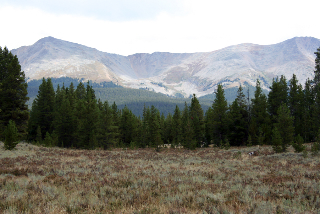Uva Ursi: A Winter Ally
by Thea Summer Deer
Last summer I had the good fortune to travel to Colorado and visit my sister in her off-the-grid  cabin at 10,000 feet. The views of the majestic Rocky Mountains were incredible in all four directions. The cabin sits above Lake Taylor Reserve just below the tree line and Ice Mountain in some of the most pristine wilderness in North America.
cabin at 10,000 feet. The views of the majestic Rocky Mountains were incredible in all four directions. The cabin sits above Lake Taylor Reserve just below the tree line and Ice Mountain in some of the most pristine wilderness in North America.
On a walk through the woods with my sister she pointed out where the Moose had their babies earlier that year. Deer, Elk and Bear are frequent visitors. But what really got me going was the blanket of uva ursi at my feet.
I had never seen it growing in its natural habitat and certainly had never seen this much of it. I had attempted to plant it on my steep land in North Carolina in order to prevent erosion, but it didn’t fare well. The deep roots of uva ursi prevent erosion from the nutrient poor soils and steep, dry, sunny slopes where it often grows. They are difficult to start from seed and even cuttings can take up to a year to root.
Uva Ursi, Arctostaphylos uva ursi, or bearberry, is one of the few foods for bear and other wildlife available in the winter. Both the genus and species names refer to bears and grapes: uva means “grape” and ursi means “bear.” Arctostapylus combines the Greek word for bear, arkto, with the word for grape, staphyle. The berries are especially important as a food for bears when they come out of hibernation. It is the leaf, however, that is used medicinally.
Article continued on next page ...